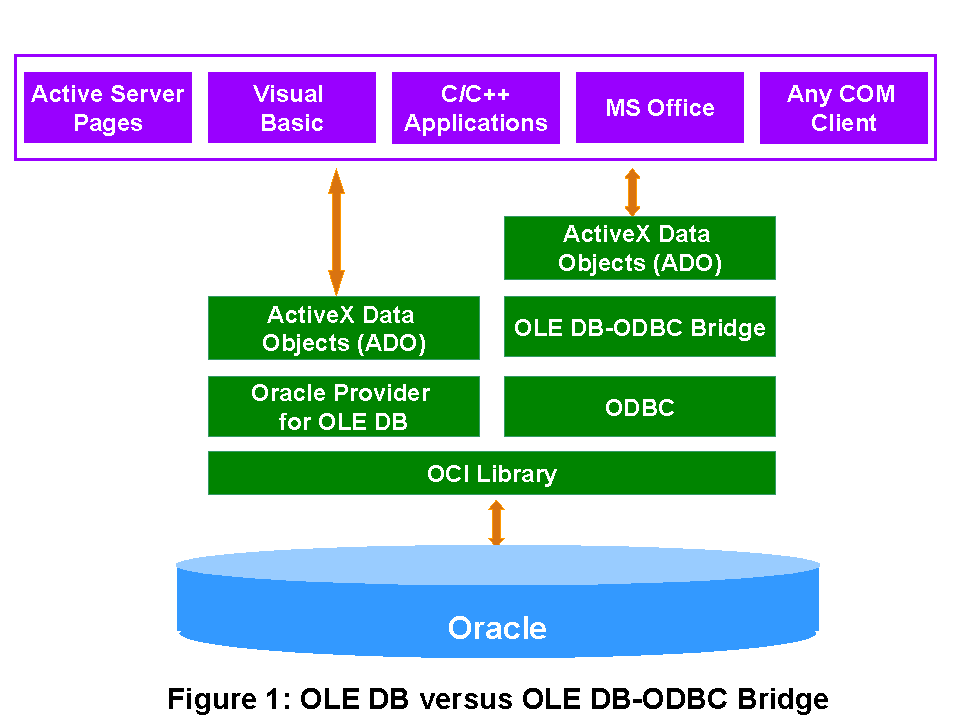Picking the Right Database Provider for Your Service Requirements
Wiki Article
Secret Features to Try To Find When Selecting a Data Source Supplier
Selecting a data source supplier is a vital choice that can dramatically impact your organization's data and procedures administration method. Among the necessary attributes to think about are scalability choices, which guarantee that your system can adapt to expanding demands.Scalability Options
When choosing a data source supplier, comprehending scalability options is essential to making certain that the chosen remedy can accommodate future growth. Scalability refers to the capability of a database system to broaden its capability and efficiency in reaction to boosted need. There are two key kinds of scalability: horizontal and vertical.Vertical scalability, or "scaling up," includes boosting a solitary web server's sources, such as CPU, RAM, or storage. This technique can be cost-effective and straightforward for smaller applications yet may get to a limit where additionally upgrades are too expensive or not practical.
Straight scalability, or "scaling out," includes adding much more servers to disperse the tons. This approach enables higher flexibility and can fit significant increases in data volume and user web traffic (database provider). It is specifically advantageous for cloud-based database services that can dynamically designate sources based on need

Security Procedures
When assessing security measures, think about the application of encryption methods (database provider). Data-at-rest and data-in-transit encryption are important to guarantee that sensitive details stays safeguarded, also in case of a security breach. In addition, try to find carriers that use strong verification mechanisms, such as multi-factor authentication (MFA), to even more improve access control
Normal protection audits and compliance with industry requirements, such as GDPR or HIPAA, are a measure of a supplier's dedication to information defense. Furthermore, inquire regarding their incident response plan; a durable plan can minimize the impact of any potential safety and security occurrence.
Efficiency Metrics
Evaluating efficiency metrics is necessary for companies to make certain that their chosen database service provider satisfies operational requirements. Trick performance metrics consist of feedback scalability, throughput, and time, which collectively determine the efficiency of database procedures under varying lots.Feedback time is essential, as it mirrors how promptly the data source can process queries and return results. Organizations ought to search for metrics that show ordinary feedback times during height and off-peak hours. Throughput, often gauged in purchases per second (TPS), offers understanding right into the data source's ability to handle high quantities of demands without performance destruction.
Scalability assesses the data source's capability to expand with the company's needs. A robust data source supplier ought to demonstrate straight and upright scaling capacities, enabling smooth changes as needs fluctuate. Furthermore, comprehending latency, particularly in distributed systems, can assist organizations evaluate the responsiveness of the database across various geographical locations.
Customer Support
Reputable consumer support is a cornerstone of efficient database administration, providing companies with the support required to enhance and settle problems efficiency. When choosing a data source service provider, evaluating the degree of client support they supply is necessary. A durable support system should include numerous networks of interaction, such as phone, e-mail, and live conversation, making sure that individuals can access aid whenever they need it.Furthermore, receptive assistance teams that are readily available 24/7 considerably improve the reliability of the database service. Prompt action times and efficient resolution of concerns can dramatically lower downtime and increase overall efficiency. It is additionally useful to consider the availability of specialized assistance workers, that can provide tailored assistance based upon an organization's details demands.

Pricing Framework
When thinking about a data source provider, the rates structure is an essential variable that can considerably impact a company's budget plan and general strategy. A clear and flexible prices design is essential for aligning the database sets you back with company needs - database provider. Organizations ought to examine whether the prices is based on intake, per customer, or a level price, as see this page each version can produce various monetary effects with timeIt is important to assess any additional expenses connected with the supplier's services, such as information storage space fees, purchase prices, and assistance costs. Some providers may use tiered rates, allowing scalability as the company expands, while others may impose rigorous restrictions that could come to be costly as data needs boost.
Furthermore, companies need to take into consideration the lasting value of the data source solution. While lower preliminary costs can be attractive, they might not account for future upgrades, upkeep costs, or combination expenses. Performing a complete cost-benefit analysis will assist recognize the most ideal pricing framework that balances support, performance, and scalability, ultimately ensuring that the picked data source company aligns with the company's functional and monetary objectives.
Final Thought
In conclusion, choosing a database provider demands careful consideration of various crucial attributes. Scalability alternatives ensure flexibility to future growth, while robust safety procedures protect delicate details. Assessing efficiency metrics allows see here now the identification of efficient databases, and obtainable consumer assistance improves the overall user experience. A clear pricing framework further adds to informed decision-making. By completely evaluating these elements, organizations can make tactical options that align with their long-lasting goals and functional demands.Choosing a data source carrier is a vital decision that can considerably influence your organization's data and operations administration method.When choosing a database provider, recognizing scalability choices is crucial to making sure that the selected remedy can fit future growth. When picking a data source company, assessing the level of client assistance they provide is necessary.When considering a data source company, the prices framework is a critical element that can dramatically influence an organization's spending plan and total strategy. Conducting a thorough cost-benefit evaluation will Clicking Here certainly help recognize the most suitable prices structure that stabilizes performance, support, and scalability, ultimately making certain that the chosen database provider lines up with the organization's operational and economic purposes.
Report this wiki page